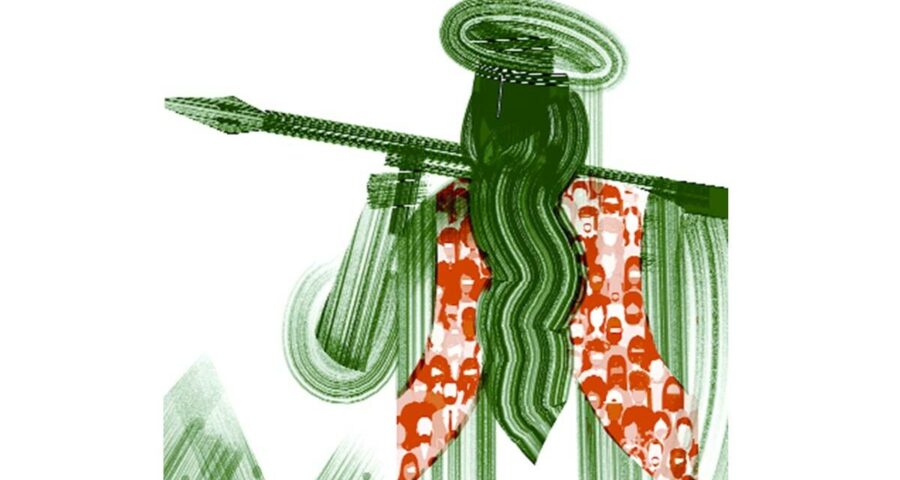It has transformed into an incredibly diverse movement that made inroads into all communities and ethnic groups, has diversified external relations in the West and East alike, and is hankering for legitimacy.
Regime changes are capricious events, since there are many variables in play. It explains their mystique. The latest one in Afghanistan, third in the past two decades, is no exception. The Mujahideen takeover in 1992 was a preordained event choreographed by the United Nations, which slipped out of its hands. The 1996 Taliban takeover was like a slow-motion talkie with Ahmad Shah Massoud simply disappearing from Kabul without a fight. Last Sunday’s dramatic developments lead to a sense of deja vu.
However, there are major differences, too — three, in particular. Unlike previous occasions, the Afghan state structures are largely intact, which was highlighted by the Taliban’s dramatic press conference in a grand setting, with chandeliers hanging from the ceiling, within 48 hours of their march into Kabul.
Second, the regime change is still playing out sedately and it may take days or even weeks before its final contours emerge in the form of a transitional government. There are signs that the victor is amenable to persuasion to accept a consensual outcome.
Third, and most important, unlike the previous two occasions, the international community, especially regional states, is midwifing the transition. Again, the victor is willing to take help from the world community to assist in a sweeping national reconciliation that accommodates the widest possible swathe of opinion in that hopelessly fragmented country. Setting aside great-game impulses in new Cold War conditions, big powers are constructively engaging the Taliban.
Truly, it is incomprehensible why India shut its embassy in Kabul. A great opportunity was at hand to plough a new Afghan policy independent of American tutelage. The only plausible explanation for such unseemly hurry to retrench could be that the government takes a zero-sum view that if Pakistan has a sense of triumphalism, then India must be the “loser”. But we were never really such one-dimensional people previously. We had a profound understanding of the Afghan nation’s ethos, traditions and culture and their enduring affection toward India.
Then Prime Minister Narasimha Rao didn’t have an iota of doubt that India shouldn’t lose time to launch a conversation with the Mujahideen groups (“Peshawar Seven”) notwithstanding their close association with Pakistan. Suffice to say, the Indian narrative is deeply flawed. We are riveted on archaic notions of “strategic depth” and regard the Taliban as a plaything of the Pakistani establishment.
Our perspective on the Taliban movement remains unchanged from the brief period it held power in Kabul. And, alas, our erroneous assumptions leave no scope to accommodate the compelling ground reality that Taliban today is largely an indigenous movement with roots running extensively in Afghan society. Indeed, through the past two decades in political wilderness, Taliban has transformed into an incredibly diverse movement that made inroads into all communities and ethnic groups.
Equally, the Indian establishment refuses to acknowledge what even the Western world, leave alone regional states, accepts: Pakistan’s political economy is undergoing a profound transfiguration and it increasingly regards geo-economics as the leitmotif of its regional strategy. Why and how this is happening makes an epoch-making story of change. But the Indian elite doggedly refuses to take note of it lest they would need to respond to it as a responsible neighbour. Political exigencies apparently demand that it is advantageous to be stuck in the old gyre and keep turning and turning.
Compared to the 1990s, the Taliban today is unrecognisable. The vacation of their Kabul embassies by Saudi Arabia and the UAE bears eloquent testimony to it. The Sheikhs held the Taliban in a pernicious grip in the 1990s, but the latter holds Saudis and Emiratis at arm’s length now.
None other than Mullah Khairullah Khairkhwa, a close associate of Mullah Omar and one of the original Taliban members who launched the movement in 1994 (interior minister, governor of Herat, etc. during their regime), stated in front of TV cameras a fortnight ago that Wahhabism is a deviant belief and “there has never been such a belief” among Afghans and “we (Taliban) do not have the same connection (with Saudi Arabia) as before”. There have been no Taliban visits to Saudi Arabia for years now. The Taliban is asserting its traditional Islam and Shariah.
The Saudi and Emirati intelligence funded the Taliban and manipulated it to settle scores with Iran in the 1990s. Remember the disappearance of 11 Iranian diplomats from the consulate in Mazar-i-Sharif in 1998 in an intelligence operation for which the Taliban was blamed? Talibs are wiser now about the ways of the world, exposed to the metropolis and have diversified external relations in the West and East alike, and are hankering for legitimacy. This is in sync with Pakistan’s priorities too and is of momentous significance as a pointer toward what to expect in Afghanistan. This needs explaining.
All evidence shows Pakistan is persuading the erstwhile Northern Alliance to join a broad-based, inclusive transitional set-up with the Taliban as the immediate priority. The signals look good. Meanwhile, the coordinating group comprising Hamid Karzai, Abdullah Abdullah and Gulbuddin Hekmatyar is en route to Doha, acting as a bridge for the non-Taliban political forces (not only from the Northern Alliance) who were marginalised by Ashraf Ghani and his corrupt clique. The statements from Moscow and Washington suggest that this process will gain traction.
To be sure, our diplomats will be eager to return to Kabul, reopen the embassy and launch a conversation with the new ruling elites and contribute to regional efforts to stabilise Afghanistan in the long-term interests of regional security and stability. There is an imperative need to stop viewing Afghanistan as a sub-plot of India’s Pakistan policies.
The paranoia in certain circles in India about the “spillover” from Afghanistan is unwarranted. The Taliban has an exclusively Afghan-centric agenda. They are old-fashioned “nationalists”. It is simply inconceivable that once ensconced in power, Taliban will play a subaltern role to any regional state. On the contrary, Taliban’s “Afghan-ness” will inevitably surge as a robust sense of independence and “strategic autonomy” in statecraft. They will be interested in friendly relations with India.
The writer, a former diplomat, headed the Iran-Pakistan-Afghanistan division in the MEA
Source: Read Full Article


